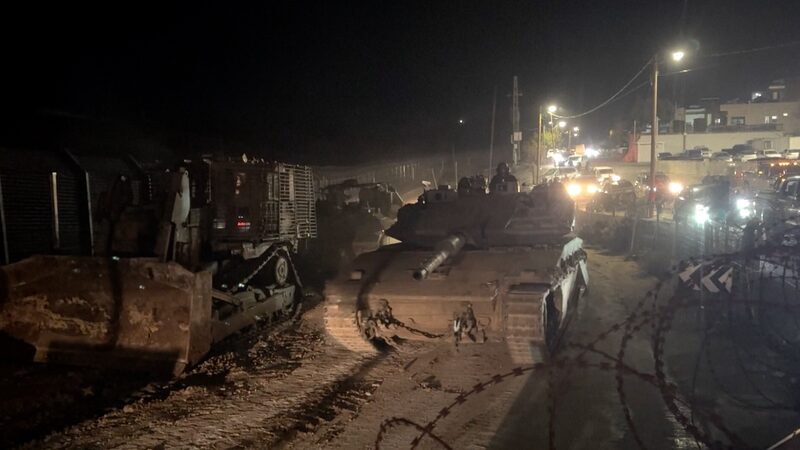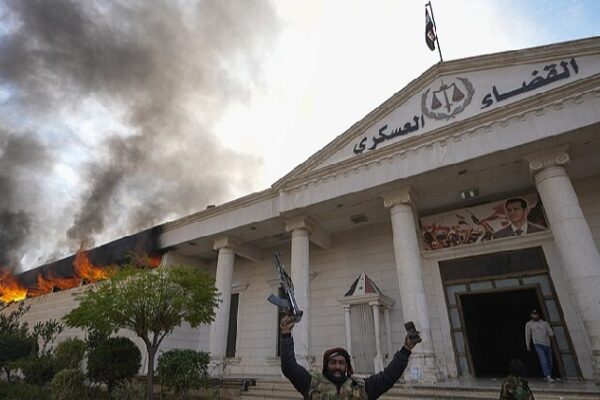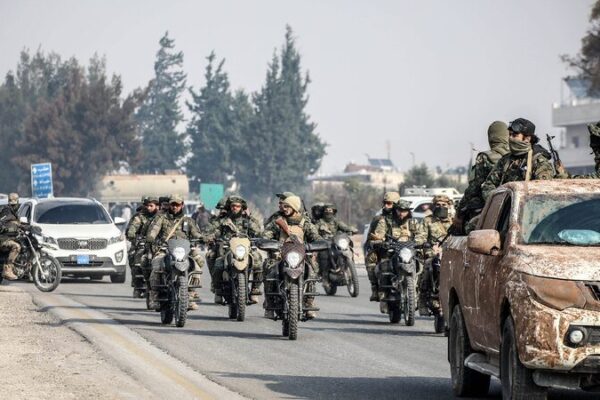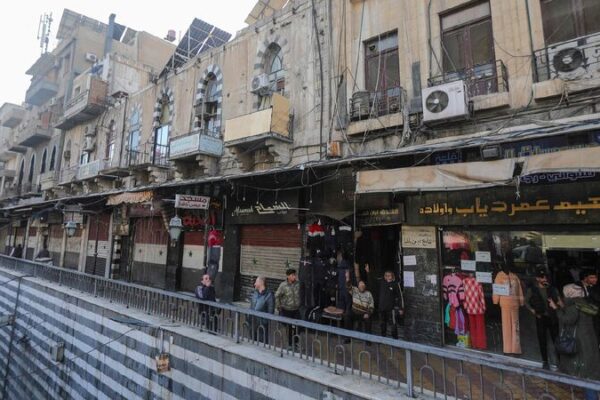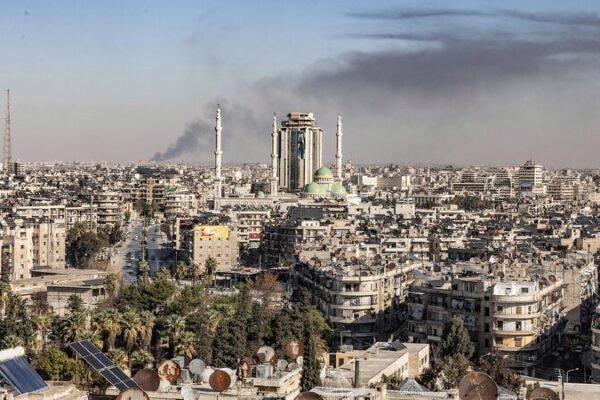Damascus, Syria — Opposition forces have taken full control of Damascus on Sunday, marking the end of more than five decades of Assad family rule. The swift collapse of President Bashar al-Assad’s government followed a fierce rebel offensive that lasted less than two weeks.
The opposition declared that Assad had fled the capital and abdicated power. Later, Russian state media reported that Assad and his family had arrived in Moscow, where they have been granted asylum on humanitarian grounds. Russia’s Foreign Ministry confirmed that Assad had decided to leave his position and the country, giving instructions to transfer power peacefully.
Transition of Power
According to a United Nations official in Syria, Syrian Prime Minister Mohammad Ghazi Al-Jallali conducted a power transfer with opposition forces at a hotel in Damascus on Sunday. Al-Jallali is temporarily overseeing public institutions and was appointed by Hayat Tahrir al-Sham (HTS) leader Abu Mohammad Al-Jolani, who spearheaded the swift offensive and has now arrived in Damascus.
Calm Amidst Change
Al-Jolani instructed opposition forces in Damascus to refrain from approaching public institutions and banned celebratory gunfire. A curfew was imposed starting from the afternoon till the next day, with warnings issued against looters and those firing weapons in the air.
Prime Minister Al-Jallali called on Syrians to protect public facilities, emphasizing that they belong to all citizens. “We extend our hands to every Syrian committed to safeguarding the country’s resources,” he said in a televised address. “Syria belongs to all Syrians, and I urge everyone to think rationally about the nation’s best interests.”
Reports from Damascus indicate that most opposition forces have refrained from harming civilians. However, some factions not under HTS leadership were reported to be engaging in vandalism, looting, and arson targeting public institutions and shops. By Sunday evening, during the curfew, the situation had stabilized compared to earlier in the day.
International Reactions
As opposition forces entered Damascus, the United States Central Command announced that its forces had conducted precision airstrikes targeting known ISIS camps and operatives in central Syria. The strikes utilized various U.S. Air Force assets, hitting a total of 75 targets.
Daniel Shapiro, Deputy Assistant Secretary of Defense for the Middle East, affirmed that the U.S. will maintain its military presence in eastern Syria to prevent the resurgence of ISIS.
Meanwhile, the Israeli Air Force carried out extensive strikes on multiple targets within Syria. The Israeli Defense Ministry stated that the operation aimed to destroy “strategic weapons” that could potentially fall into the hands of “hostile forces” following the collapse of the Assad government.
Israeli Prime Minister Benjamin Netanyahu announced that the military has temporarily seized control of a demilitarized buffer zone in the Golan Heights, stating that the 1974 disengagement agreement with Syria had “collapsed” with the rebel takeover.
Calls for Peaceful Transition
The Arab League condemned Israel’s actions and called for a peaceful, inclusive, and secure political transition in Syria. In a statement, it stressed the importance of placing national interests above all else, exercising restraint, and safeguarding lives and property.
UN Secretary-General António Guterres said that after 14 years of conflict and the fall of the Syrian government, the Syrian people now have a historic opportunity to build a stable and peaceful future. He emphasized that Syria’s destiny must be determined by its own people and pledged that the UN Special Envoy for Syria will work closely with them to achieve this goal.
U.S. President Joe Biden described the end of the Assad government as a historic moment for the Syrian people, albeit one fraught with risks and uncertainties. He reaffirmed that the U.S. would work with partners and stakeholders in Syria to help manage these challenges.
However, President-elect Donald Trump expressed a contrasting view, stating on social media that the U.S. should not get involved in Syria’s affairs, emphasizing, “Syria is a mess, but it’s not our fight. Let it play out. Do not get involved!”
Reference(s):
cgtn.com
